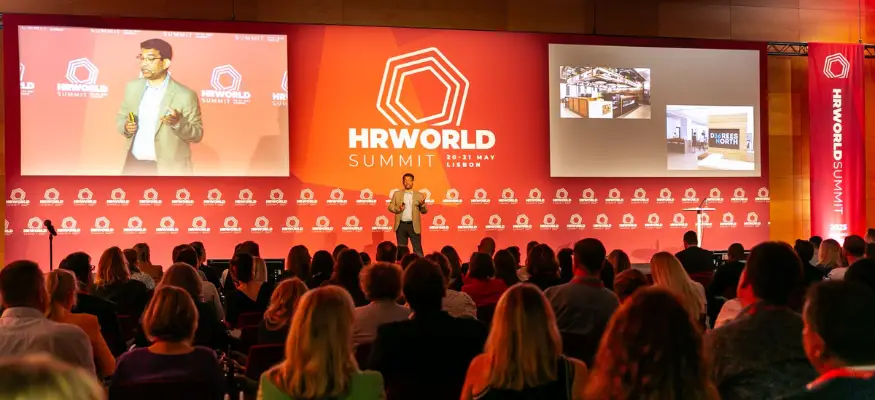Conversation with Dr. Bernhard Kaumanns
“We have to elevate from the well-being thinking,” Kaumanns emphasized, “that’s more about putting well-intended initiatives into the workplace, towards a strategic implementation of health into the workplace.” For him, the term corporate health signifies a necessary evolution: a shift from reactive wellness programs to proactive, systemic interventions that target the root causes of organizational dysfunction. “Prevention,” he noted, “means to act early so that you don’t have to pay the higher cost at a later stage.”
Indeed, the costs of inaction are mounting. Rising absenteeism, increased burnout rates, and declining engagement are not isolated problems, but visible symptoms of deeper cultural and structural issues. “We need to go down to the root cause,” Kaumanns warned. “For example, if your leadership culture doesn’t support development, doesn’t listen, and creates complexity, then frustration turns into stress, stress into exhaustion, and exhaustion eventually becomes burnout.”
One of the biggest blind spots in the corporate conversation, he pointed out, is presentism—when employees physically show up but mentally check out. “Nobody goes to work and says, ‘I’ll only give 50% today,’” Kaumanns said. “But when the environment is draining, when you’re not appreciated or heard, that’s what ends up happening.” He cited Gallup’s global engagement index, which shows that many companies get only about 60% of performance in return for 100% of salary. “It’s not about blaming anyone,” he clarified. “It’s about understanding the underlying dynamics that lead to these outcomes.”
So how should HR leaders respond? Not with duct-tape solutions, Kaumanns argues, but with strategy backed by data. “We cannot start this shift without a reliable dataset,” he said. This means combining people analytics with AI-enabled diagnostics to pinpoint where intervention is most needed. “With the technology available today, we don’t need to wait 12 or 18 months to see if something works. Predictive models now give us 70–80% reliability upfront—and that’s only going to improve.”
Still, convincing the CFO to invest in long-term health strategies isn’t always easy—especially when corporate pressures lean towards short-term returns. But Kaumanns suggests reframing the conversation. “What is the cost of not changing?” he asked. “Look at your sick leave, your attrition, your disengagement. That’s not a cost—it’s a budget. A budget you can mobilize with the right initiatives.” HR’s task, he said, is to start speaking the language of finance. “The CFO understands ROI. If HR can frame corporate health as an investment with measurable returns, they’ll unlock a completely different kind of dialogue.”
Importantly, this isn’t just about the company. The individual plays a crucial role. “My health is my responsibility,” Kaumanns emphasizes. “But the organization must create the right frame so that I can be the best version of myself.” He describes it as a partnership model: employers offer supportive environments, and employees take personal ownership. “It’s not about telling people what to do,” he adds, “but about designing a culture that empowers individuals to make healthier choices.”
As we discuss the pressures of constant transformation, Kaumanns acknowledges the risk of change fatigue. “We live in a time of nonstop initiatives,” he says. “But being healthy and feeling well is not a trend—it’s a natural state. Work should not come at the expense of your health. We need to rediscover that balance.” His words convey a message of hope, suggesting that a healthier, more balanced work-life balance is not just a dream, but a tangible possibility.
Looking ahead, Kaumanns sees a future shaped by intelligent ecosystems—personalized, preventive, and deeply integrated into daily work life. “Soon, we’ll move far beyond fitness subscriptions,” he predicted. “We’ll see tools that support your cooking, your sleep, your movement, your shopping habits—interconnected systems that adapt to you.” He calls it health as a service, a new category where companies tap into external providers to co-create better health outcomes.
In this evolving landscape, employers who lead the way will have a competitive edge—not just in attracting talent, but in unlocking performance. “Those who get it first,” Kaumanns said, “will be the places where people want to work. It’s a growing trend already.”
But there’s a caveat. No single company can do this alone. Kaumanns’s approach reflects the philosophy he promotes: partnership. “We support companies from analytics to implementation,” he said, “but we don’t do everything ourselves. We work with qualified partners because no one is best at everything.” That ecosystem mindset—collaborative, adaptable, data-driven—mirrors the very strategy he believes will define the future of work.
As we wrapped up the conversation, one message stood out: Corporate health isn’t a luxury or a bonus program. It’s a necessity for sustainable business. “You can’t separate work from life anymore,” Kaumanns said. “And you shouldn’t have to leave your health at the office door.”
In a world where agility is demanded and burnout is endemic, Kaumanns offers a refreshing alternative: a strategic, preventative, and profoundly human approach to work. One that just might change the way we think about health—at work and beyond.


